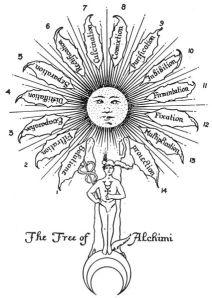Much as I was hoping not to turn this blog into an obituary page, it’s really not been a good couple of months for musicians. Maybe these things really do come in threes?
Kevin Ayers passed away last month and now we’ve lost both Alvin Lee, the fleet-fingered axeman for UK psych blooz band Ten Years After and Peter Banks, one of the founder members of UK prog-rock giants, Yes.
TYA formed in 1966, out of a couple of local Nottingham bands. Lee was enamoured of American blues and rock-and-roll and used those influences in his guitar-playing. The quartet moved to London and were offered a recording contract on Decca’s progressive “Deram” label, also home to The Moody Blues, among others. Their first record was released in 1967 and while it was primarily a straight-forward R&B/blues collection, it did show off Lee’s lightning-fast guitar phrasing on a few of the tracks. Their second LP, Undead, was recorded live and Lee came to the fore with his playing, this time incorporating a bit of jazz into the mix.
The band went ‘underground’ during that time, playing in hippie clubs like Middle Earth. Their third album, Stonedhenge, released in early 1969, reflected the change with a more psychedelic tinge in it’s studio experimentation. Ssssh followed on in the same vein, but maybe a bit less experimental. They also went from a cult act to internationally famous after their appearance at the Woodstock festival in August 1969 (and the subsequent film, released in 1970).
In 1970, they again released two LPs, the first of which, Cricklewood Green, is considered to be one of their ‘classic’ records. They released a single from it, Love Like A Man, which made the upper reaches of the UK charts that year. Watt, their final album for Deram, was released late in the year and didn’t fare as well. A Space In Time (on Chrysalis Records) was dropped in August 1971 and is considered to be their finest album. They had another hit single with I’d Love To Change The World, which is their most well-known song (besides their Woodstock show-stopper, I’m Going Home).
After that – the band entered a slow decline, not helped by Lee’s alcohol intake. The last couple of studio records seemed uninspired and even a stopgap live set couldn’t slow the fragmentation. TYA split in 1974 and Lee embarked on a solo career. By the 1980s, even Lee was laying low, but the original TYA line-up reformed in 1989 for the About Time album, which was fairly well-received for a new record by a ‘dinosaur’ band. The reunion didn’t last long and soon Lee was back as a solo act. The others carried on as Ten Years After, with new guitarist, Joe Gooch.
While Lee is primarily remembered for just a couple of songs and super-fast soloing, he deserves a bit more credit for songwriting and being willing to stretch his band’s repertoire beyond just playin’ th’ blues.
Peter Banks started out in a few R&B bands, before getting together with future Yes bassist Chris Squire in The Syn, an R&B-turned-psychedelic group who released a couple of singles. One of them, Flowerman (with 14-Hour Technicolour Dream as the B-side), is considered a classic of UK psychedelia now. The Syn folded late in 1967 and Squire joined Mabel Greer’s Toy Shop, featuring Jon Anderson and Bill Bruford. Banks joined for a short while, then left. The band then broke up and Banks and some of the remaining members formed a new group with the ‘provisional’ name Yes. The new band gained a reputation on the live circuit and even played as a support act at the final Cream show in 1968.
Their first (self-titled) album was released in 1969 and was a melange of pop, psychedelia and stretched-out arrangements. Banks would often incorporate classical melodies and bits of show tunes and other snippets into his solos, much like Roy Wood of The Move. They were creating a fusion of rock and classical music (along with King Crimson, Genesis and a few other bands) in a distinctly British way that would eventually be called ‘progressive rock’.
By the second album, Time And A Word, in 1970 – Banks was becoming more critical of the direction of the band. He didn’t like the orchestral arrangements which effectively sidelined himself and keyboardist Tony Kaye. Banks was asked to leave the band in April 1970. He was replaced by former Tomorrow guitarist Steve Howe and the band entered their ‘golden’ era of prog-rock. Banks formed Flash in 1972 and they released three albums of pop-prog which sounded very much like early Yes. The original incarnation of Flash split in 1973 and while Banks was trying to get a new line-up together, met Sydney Foxx. They were married and recorded three albums as Empire, though none of the material was released until the late 90s.
In the 1980s, much like Lee, Banks did a lot of session work and generally kept a low profile. He released his second full-length solo album in 1993 (his first was dropped in 1973), with another one following in 1995. He also was instrumental in getting the Yes BBC sessions from 1969 and 1970 released as a 2-CD set in 1997. Banks rejoined The Syn in 2004, but left again shortly after. Lately, he was playing in an improvisational trio called Harmony In Diversity.
Danny Baker has referred to Banks as the ‘Architect of Prog’. I’d say that’s a fairly accurate description, though Banks may have to split the title with Robert Fripp and Mike Pinder of The Moody Blues. Still, he was a talented guitarist with loads of great ideas. He certainly guided Yes to become a top-flight progressive band and for that, he should be given accolades.
